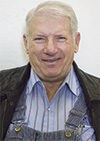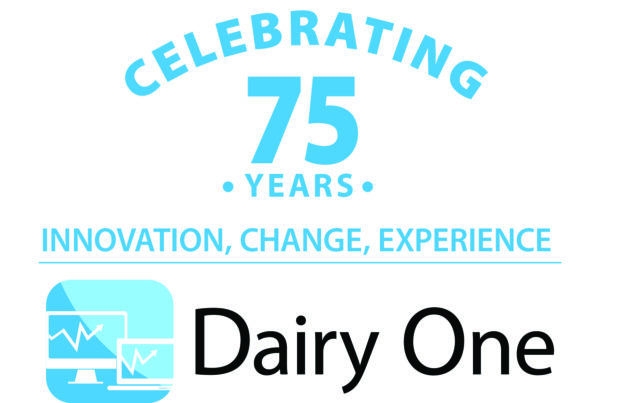Dan said, speaking of the hills we had just come down in an empty hay truck pulling double trailers on black ice, “I did not like that.”
We were on our way to load some grass hay near Potlatch, Idaho. I was with him because Dan needed to use back roads, and because there was a question as to how much of each bale of grass was what we thought it was.
Since I had cut the deal with the grower, I needed to be there.
The deep rumble of the eight-inch exhaust stacks on the truck had finally lulled me into an almost-asleep mode, when I noticed the truck was not moving very fast and seemed to be slowing. It was about an hour before daylight.
I looked over at Dan and asked him if the road was a little greasy. He said it was a lot greasy. By and by I felt the truck slide a bit on the ice and I told Dan to “Stop that!”
We met a Milky Way milk truck going the other direction. He hailed us on the C.B. radio with a warning to be very careful on the next two or three hills.
Dan thanked him and noted that he had already noticed the condition of the road, and passed on how far it went before the milk truck would find “good trucking.”
In the middle of all this, the grower called and expressed concern that we might have a problem with mud at the hay shed. It had rained most of the night there. We were already passed the point of no return, so I told him that we would be there if the ice skates on the truck held out.
As goes the luck of a hay hauler, we ended up with only one load of hay, but we got in and out without getting stuck in the mud.
On the way home, my artificial knees complained of the cramped position I was in. I told Dan I remembered why they called the passenger seat of a truck the “dummy chair.” (The occupant was too dumb to either drive or go lay down in the sleeper.) I moved to the sleeper berth and stretched out.
My body felt better, but true to form, my mind would not relax and let me sleep. I finally drifted off, only to wake up because I was cold. We had found freezing fog, and the wet cold had chilled the sleeper of Dan’s truck; it was back to the dummy chair.
I’ve also been behind the wheel of a big truck again lately. It’s interesting that on the first trip with snow and ice on the roads, I still had the old confidence of being in control of the rig on the slippery road. Years back with my own truck, it took five or six snowstorms each winter for three or four seasons to feel confident.
Snoqualmie Pass on I-90 in Washington makes for interesting driving. Few wintertime trips are the same. Drivers complain about being required to install tire chains and then run on wet pavement for miles before seeing maybe a mile of questionable snowpack on the roadway.
Conditions can change so quickly, though, that wet pavement can turn to ice faster than truck traffic can stopp to chain up. Then someone will spin out and stop traffic until they can get going again.
The axiom heard on the road is that if there was a way to identify the 5 percent of drivers who had no business driving the pass on slick roads, then the rest of us would hardly ever have to chain up.
Of the trucks heading west across Snoqualmie, a high percentage are hauling product in containers heading to the ports at Seattle and Tacoma, Washington for export.
Count up the ballpark figure of 35 hay exporters, shipping from two to 40 containers a day, and it adds up to 200 to 400 containers of hay being exported every day, five days a week over a year. That’s a lot of truck traffic.
My second trip got interesting. I delivered to Tacoma, and then I got a call from the guy orchestrating my day; he stated that I had to go to Seattle to get my empty container to come home. I called Fred and got directions, saving me a bunch of time and traffic hassle.
About three miles from the Seattle terminal, I smelled anti-freeze and observed steam coming from under the hood on my truck. There is no place to stop beside the road.
I watched the temperature gauge closely and proceeded to the terminal, got the truck out of the way and opened the hood. I called the company truck shop and got the phone numbers of the truck dealers close by where we had an open account. Kenny said that I would need some tools to replace the hose anyway.
I reminded Kenny that even with a brand-new truck, I had learned a long time ago to never even cross the street with a truck without a handful of tools.
I called the Peterbilt dealer, which was the closest, and requested that the parts runner bring me the short piece of hose I needed and a couple of gallons of pre-mix anti-freeze. “Should be there in half an hour” was the response. Forty-five minutes later, I called back.
“It will be at least an hour” was the new reply. It was getting late in the day and since I had not lost enough coolant to activate the “low coolant” sensor, I proceeded through the terminal to get my empty container.
It was my first time in the terminal, and I did manage to negotiate the maze and find the correct spot to receive the container. I was there five minutes before the inbound gate to the terminal was scheduled to close. I waited. I observed the giant fork-lift, called a “pick” drive on by and not come back.
This seemed to be the scene as they all left. I found a guy in a pick-up with a yellow light on top, who told me that all the operators had left for the day. I was out of luck.
I found my way out of the terminal and called the truck dealer. “At least a couple of hours” was the new response. I asked for the phone number of a cab that worked the area. An hour later I was on the phone with the cabbie, who was claiming to be where I was and there was no one there.
I told him that I thought he was lost; I was standing by the edge of the road reading the street sign to him, and there was no cab there.
Twenty minutes later, he drove around the corner to where I had been waiting and took me to the dealership. I got the parts and the anti-freeze and headed back to the truck. Wrong size hose.
Back to the dealer, then back to the truck. I made the cabbie wait while I made sure I had all I needed. The cabbie was a native of India who came to this country with his family when he was 17. He asked me if it was easy to learn to drive a big truck. I did not encourage him. FG









